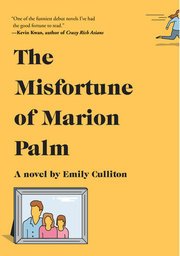The Ninth Hour Alice McDermott (2017)
Being Catholic in early-20th-century Brooklyn wasn’t easy. If your loved one committed suicide because of untreated depression, he or she could not have a funeral or be buried in consecrated ground. If your spouse became severely incapacitated, mentally or physically, you could not get a divorce and remarry, even if you were committed to caring for that first spouse. If you were involved in a sexual relationship outside of marriage, your eternal soul was in extreme peril.
Alice McDermott doesn’t dance around these situations in The Ninth Hour. She presents them forthrightly, and she also presents some of the potential advantages of being Catholic in early-20th-century Brooklyn. If you were widowed by the suicide of your husband, the local nuns might take you in, give you a job in their laundry room, and help you raise your daughter. If you were trying to care for a disabled spouse, the “nursing sisters” might come to your tenement every day to perform the most menial and repulsive of tasks. If you were committing mortal sin in a consensual adult relationship, the nuns might look the other way and just suggest that you do penance.
The Ninth Hour looks frankly at all these cases, balancing the pros and cons. Many modern novels stereotype nuns as either cruel harridans or genial saints. The nuns in The Ninth Hour instead come to life beautifully and individually, as women who have entered religious life for widely differing reasons, as pragmatists who approach their vocations with varying levels of compliance. And the parish priest, who makes a brief appearance, is indeed proud and officious, but when one of the nuns calls on him, he agrees to intercede in a case of sexual abuse. The lay people that McDermott portrays also avoid easy categorization. The young widow, Annie, does not wallow in her grief. The neighborhood milkman is attentive to his disabled wife but does not sacrifice all to her care.
Alice McDermott, who won the National Book Award for Charming Billy in 1998, is a major American writer. I find McDermott’s language wonderfully resonant—her descriptions of weather are particularly fine—and her evocations of historical period are offered with a delicate touch. I never felt that the historicity of The Ninth Hour was being shoved at me. For example, the title of the book refers to the nuns’ afternoon prayers, but actual scenes involving liturgical observances are minimal.
McDermott is especially revered by many progressive Catholics for her clear-sighted depictions of people of faith in all their varieties. Her approach to religion is very different from, and superior to, that of other contemporary writers. By chance, I read The Ninth Hour in the same week that I read Fire Sermon by Jamie Quatro, which is another book about moral decisions by people of faith. In Quatro’s novel, a married woman spends endless hours in guilt-ridden examination of conscience about a brief affair. I do not recommend Quatro’s self indulgent and occasionally sickening book.
If you are interested in the intersections of morality, religion, and culture, read McDermott’s The Ninth Hour instead. And if you like novels about New York, click on that category in the Archive of Book Reviews, in the right-hand column.




